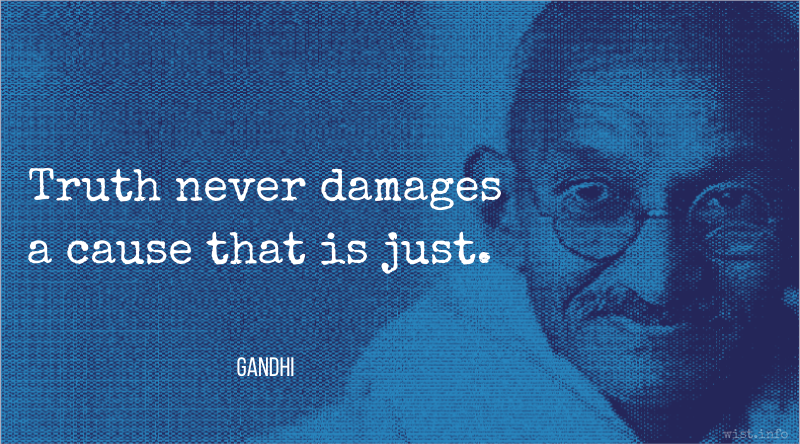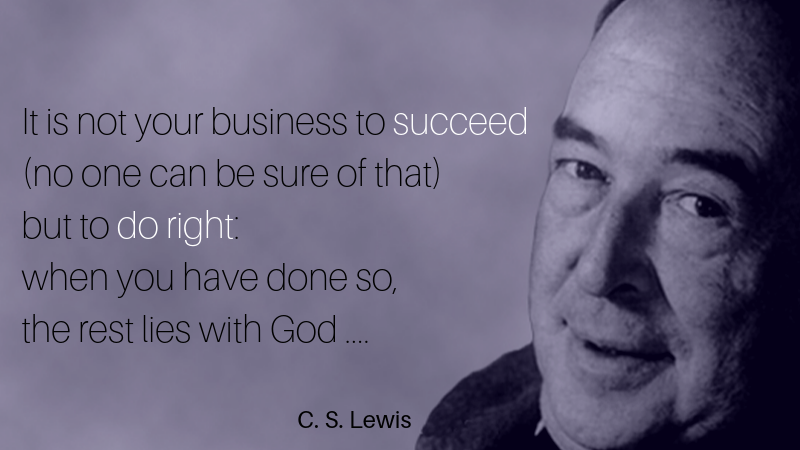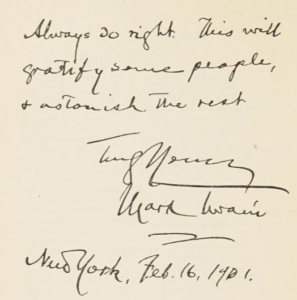Hope, in this deep and powerful sense, is not the same as joy that things are going well, or willingness to invest in enterprises that are obviously headed for early success, but, rather, an ability to work for something because it is good, not just because it stands a chance to succeed. The more unpropitious the situation in which we demonstrate hope, the deeper that hope is. Hope is definitely not the same thing as optimism. It is not the conviction that something will turn out well, but the certainty that something makes sense, regardless of how it turns out.
Václav Havel (1936-2011) Czech playwright, essayist, dissident, politician
Disturbing the Peace: A Conversation with Karel Hvížďala, ch. 5 “The Politics of Hope” (1986) [tr. Wilson (1990)]
(Source)
The last two sentences are usually combined as:Hope is not the conviction that something will turn out well, but the certainty that something makes sense, regardless of how it turns out.
Variant:Hope is not the conviction that something will turn out well, but the certainty that something is worth doing no matter how it turns out.
Quotations about:
righteousness
Note not all quotations have been tagged, so Search may find additional quotes on this topic.
When a noble deed is done, who is likely to appreciate it? They who are noble themselves.
Henry David Thoreau (1817-1862) American philosopher and writer
Speech (1860-07-04), “The Last Days of John Brown,” North Elba, Massachusetts
(Source)
Collected in A Yankee in Canada (1866).
In a word, there is only one thing here worth the minding, and that is, to be true and just, and to show benevolence, even to the untrue and unjust.
[Ἓν ὧδε πολλοῦ ἄξιον, τὸ μετ᾿ ἀληθείας καὶ δικαιοσύνης εὐμενῆ τοῖς ψεύσταις καὶ ἀδίκοις διαβιοῦν.]
Marcus Aurelius (AD 121-180) Roman emperor (161-180), Stoic philosopher
Meditations [To Himself; Τὰ εἰς ἑαυτόν], Book 6, ch. 47 (6.47) (AD 161-180) [tr. Collier/Zimmern (1887)]
(Source)
(Source (Greek)). Alternate translations:One thing there is, and that only, which is worth our while in this world, and ought by us much to be esteemed; and that is, according to truth and righteousness, meekly and lovingly to converse with false, and unrighteous men.
[tr. Casaubon (1634), 6.42]In a word. There's only one thing here worth the minding; And that is, not to imitate the Degeneracy of Mortals: But to be True, Honest, and Good-natur'd, even amongst Knaves, and Sharpers.
[tr. Collier (1701)]The one thing valuable in this life, is, to spend it in a steady course of truth, justice, and humanity, toward even the false and unjust.
[tr. Hutcheson/Moor (1742)]In short, there is nothing here much worth our attention, but to act on all occasions with a regard to truth and justice, and to live peaceably even with those who act with fraud and injustice.
[tr. Graves (1792), 6.41]One thing here is worth a great deal, to pass thy life in truth and justice, with a benevolent disposition even to liars and unjust men.
[tr. Long (1862)]Here one thing is of real worth, to live out life in truth and justice, with charity even to the false and the unjust.
[tr. Rendall (1898)]The one precious thing in life is to spend it in a steady course of truth and justice, with kindliness even for the false and the unjust.
[tr. Hutcheson/Chrystal (1902)]One thing on earth is worth much -- to live out our lives in truth and justice, and in charity with liars and unjust men.
[tr. Haines (Loeb) (1916)]One thing here is of great price, to live out life with truth and righteousness, gracious to liars and to the unrighteous.
[tr. Farquharson (1944)]In this life one thing only is of precious worth: to live out one's days in truthfulness and fair dealing, and in charity even with the false and unjust.
[tr. Staniforth (1964)]In this world there is only one thing of real value, to pass our days in truth and justice, and yet be gracious to those who are false and unjust.
[tr. Hard (1997 ed.)]The only thing that isn’t worthless: to live this life out truthfully and rightly. And be patient with those who don't.
[tr. Hays (2003)]In this world there is only one thing of value, to live out your life in truth and justice, tolerant of those who are neither true nor just.
[tr. Hammond (2006)]In this world there is only one thing of real value, to pass our days in truth and justice, and yet be gracious to those who are false and unjust.
[tr. Hard (2011 ed.)]So there is one thing that is of most value: to live out your life in truth and justice and be kind to those who are false and unjust.
[tr. Gill (2013)]So one thing is worth much: to keep on living with truth and justice and in good will even among liars and unjust men.
[tr. @sentantiq (2019)]
In short, if youth is not quite right in its opinions, there is a strong probability that age is not much more so.
Any peace, even the most inequitable, should be preferred to the most righteous war.
[Iniquissimam pacem iustissimo bello anteferrem.]
Marcus Tullius Cicero (106-43 BC) Roman orator, statesman, philosopher
Epistulae ad Familiares [Letters to Friends], Book 6, Letter 6, sec. 5 (6.6.5), to Aulus Cæcina (46 BC) [tr. Shuckburgh (1899), #486]
(Source)
On his efforts to prevent a civil war between Caesar and Pompeius. See also this letter (49 BC)
(Source (Latin)). Alternate translation:Peace: the which, though it were accompanied with unequall conditions, yet I preferred it before warre, which on our behalfe was most just.
[tr. Webbe (1620)]Contests of this kind, tho' ever so justly founded, even the most disadvantageous terms of accommodation were preferable to having recourse to arms.
[tr. Melmoth (1753), 9.34]Why I would choose the most unfair peace in preference to the fairest of wars.
[tr. Jeans (1880), # 91]A peace even on the most unfavourable terms was preferable to the most righteous of wars.
[tr. Williams (Loeb) (1928)][...] the most inequitable peace as preferable to the most righteous of wars.
[tr. Shackleton Bailey (1978), # 234]I would prefer the most unfair peace to the justest war.
[tr. @sententiq (2012)]
Self-respect will keep a man from being abject when he is in the power of enemies, and will enable him to feel that he may be in the right when the world is against him. If a man has not this quality, he will feel that majority opinion, or governmental opinion, is to be treated as infallible, and such a way of feeling, if it is general, makes both moral and intellectual progress impossible.
Bertrand Russell (1872-1970) English mathematician and philosopher
Authority and the Individual, Lecture 4 (1949)
(Source)
Collection, with some edits, of the inaugural Reith Lectures, BBC, "Authority and the Individual," No. 4 "The Conflict of Technique and Human Nature", 27:01 (1949-01-16).
The man of firm and righteous will,
No rabble, clamorous for the wrong,
No tyrant’s brow, whose frown may kill,
Can shake the strength that makes him strong.[Iustum et tenacem propositi virum
non civium ardor prava iubentium,
non voltus instantis tyranni
mente quatit solida]Horace (65-8 BC) Roman poet, satirist, soldier, politician [Quintus Horatius Flaccus]
Odes [Carmina], Book 3, # 3, l. 1ff (3.3.1-4) (23 BC) [tr. Conington (1872)]
(Source)
(Source (Latin)). Alternate translations:An honest and resolved man,
Neither a peoples tumults can,
Neither a Tyrants indignation,
Un-center from his fast foundation.
[tr. Fanshaw; ed. Brome (1666)]Not the rage of the people pressing to hurtful measures, not the aspect of a threatening tyrant can shake from his settled purpose the man who is just and determined in his resolution.
[tr. Smart/Buckley (1853)]He that is just, and firm of will
Doth not before the fury quake
Of mobs that instigate to ill,
Nor hath the tyrant's menace skill
His fixed resolve to shake.
[tr. Martin (1864)]Not the rage of the million commanding things evil,
Not the doom frowning near in the brows of the tyrant,
Shakes the upright and resolute man
In his solid completeness of soul.
[tr. Bulwer-Lytton (1870)]Neither the fury of the populace, commanding him to do what is wrong, nor the face of the despot which confronts him, [...] shakes from his solid resolve a just and determined man.
[tr. Elgood (1893)]The just man, in his purpose strong,
No madding crowd can bend to wrong.
The forceful tyrant's brow and word,
[...] His firm-set spirit cannot move.
[tr. Gladstone (1894)]Him who is just, and stands to his purpose true.
Not the unruly ardour of citizens
Shall shake from his firm resolution,
Nor visage of the oppressing tyrant.
[tr. Phelps (1897)]The upright man holding his purpose fast,
No heat of citizens enjoining wrongful acts,
No overbearing despot's countenance,
Shakes from his firm-set mind.
[tr. Garnsey (1907)]The man that's just and resolute of mood
No craze of people's perverse vote can shake,
Nor frown of threat'ning monarch make
To quit a purposed good.
[tr. Marshall (1908)]The man tenacious of his purpose in a righteous cause is not shaken from his firm resolve by the frenzy of his fellow citizens bidding what is wrong, not by the face of threatening tyrant.
[tr. Bennett (Loeb) (1912)]Who loves the Right, whose will is resolute,
His purpose naught can shake — nor rage of brute
Mob bidding him work evil; nor the eye
Of threatening despot
[tr. Mills (1924)]A mob of citizens clamouring for injustice,
An autocrat's grimace of rage [...] cannot stagger
The just and steady-purposed man.
[tr. Michie (1963)]The man who knows what's right and is tenacious
In the knowledge of what he knows cannot be shaken.
Not by people righteously impassioned
In a wrong cause, and not by menacings
Of tyrants' frowns.
[tr. Ferry (1997)]The just man, tenacious in his resolve,
will not be shaken from his settled purpose
by the frenzy of his fellow citizens
imposing that evil be done,
or by the frown of a threatening tyrant.
[tr. Alexander (1999)]The passion of the public, demanding what
is wrong, never shakes the man of just and firm
intention, from his settled purpose,
nor the tyrant’s threatening face.
[tr. Kline (2015)]Neither the passion of citizens demanding crooked things,
Not the face of a threatening tyrant
Shakes the man who is righteous and set in purpose
From his strong mind.
[tr. Wikisource (2021)]
There is nothing which a prudent man must shun more carefully than living with a view to popularity and giving serious thought to the things esteemed by the multitude, instead of making sound reason his guide of life, so that, even if he must gainsay all men and fall into disrepute and incur danger for the sake of what is honourable, he will in no wise choose to swerve from what has been recognized as right.
[ἀλλ᾽ οὐκ ἔστιν ὃ μᾶλλον φευκτέον τῷ σωφρονοῦντι, τοῦ πρὸς δόξαν ζῆν, καὶ τὰ τοῖς πολλοῖς δοκοῦντα περισκοπεῖν, καὶ μὴ. τὸν ὀρθὸν λόγον ἡγεμόνα ποιεῖσθαι τοῦ βίου, ὥστε, κἂν πᾶσιν ἀνθρώποις ἀντιλέγειν, κἂν ἀδοξεῖν καὶ κινδυνεύειν ὑ ὑπὲρ τοῦ καλοῦ δέῃ, μηδὲν αἱρεῖσθαι τῶν ὀρθῶς ἐγνωσμένων παρακινεῖν.]
Basil of Caesarea (AD 330-378) Christian bishop, theologian, monasticist, Doctor of the Church [Saint Basil the Great, Ἅγιος Βασίλειος ὁ Μέγας]
Address to Young Men on Reading Greek Literature, ch. 9, sec. 25 [tr. Deferrari/McGuire (1933)]
(Source)
When we are working at a difficult task and strive after a good thing we fight a righteous battle, the direct reward of which is that we are kept from much evil.
The gentleman admires rightness above all. A gentleman who possessed courage but lacked a sense of rightness would create political disorder, while a common person who possessed courage but lacked a sense of rightness would become a bandit.
[君子義以爲上、君子有勇而無義、爲亂、小人有勇而無義、爲盜]
[君子义以为上君子有勇而无义为乱小人有勇而无义为盗]Confucius (c. 551- c. 479 BC) Chinese philosopher, sage, politician [孔夫子 (Kǒng Fūzǐ, K'ung Fu-tzu, K'ung Fu Tse), 孔子 (Kǒngzǐ, Chungni), 孔丘 (Kǒng Qiū, K'ung Ch'iu)]
The Analects [論語, 论语, Lúnyǔ], Book 17, verse 23 (17.23) (6th C. BC – AD 3rd C.) [tr. Slingerland (2003)]
(Source)
When asked if a gentleman (junzi) values valor. Annping Chin's notes suggest that the two uses of junzi are different: the first, speaking in general of a moral person, the second of a person of high status (vs the person of low status, xiaoren) following).
(Source (Chinese) 1, 2). Alternate translations:The superior man holds righteousness to be of highest importance. A man in a superior situation, having valour without righteousness, will be guilty of insubordination; one of the lower people having valour without righteousness, will commit robbery.
[tr. Legge (1861)]Righteousness he counts higher. A gentleman who is brave without being just may become turbulent; while a common person who is brave and not just may end in becoming a highwayman.
[tr. Jennings (1895)]A gentleman esteems what is right as of the highest importance. A gentleman who has valour, but is without a knowledge and love of what is right, is likely to commit a crime. A man of the people who has courage, but is without the knowledge and love of what is right, is likely to become a robber.
[tr. Ku Hung-Ming (1898)]Men of the superior class deem rectitude the highest thing. It is men of the superior class, with courage but without rectitude, who rebel. It is men of the lower class, with courage but without rectitude, who become robbers.
[tr. Soothill (1910)]The proper man puts equity at the top, if a gentleman have courage without equity it will make a mess; if a mean man have courage without equity he will steal.
[tr. Pound (1933)]A gentleman gives the first place to Right. If a gentleman has courage but neglects Right, he becomes turbulent. If a small man has courage but neglects Right, he becomes a thief.
[tr. Waley (1938)]The perfect gentleman is given to justice and assigns to it first place. If the perfect gentleman possesses courage but not justice, there will be disorders. In the case of the mean man, there will be burglaries.
[tr. Ware (1950), 17.21]For the gentleman it is morality that is supreme. Possessed of courage but devoid of morality, a gentleman will make trouble while a small man will be a brigand.
[tr. Lau (1979)]Rightness the gentleman regards as paramount; for if a gentleman has courage but lacks a sense of right and wrong, he will cause political chaos; and if a small man has courage but lacks a sense of right and wrong, he will commit burglary.
[tr. Dawson (1993), 17.21]A gentleman puts justice above everything. A gentleman who is brave but not just may become a rebel; a vulgar man who is brave but not just may become a bandit.
[tr. Leys (1997)]
The gentleman regards righteousness as supreme. A gentleman who possesses courage but wants righteousness will become rebel; a small man who possesses courage but wants righteousness will become a bandit. [tr. Huang (1997), 17.22]A gentleman stresses the righteousness as a top rule. If a gentleman has the braveness but no righteousness, will be disordered. If a mean person has the braveness but no righteousness, will be a robber.
[tr. Cai/Yu (1998), No. 463]In fact, the exemplary person gives first priority to appropriate conduct (yi). An exemplary person who is bold yet is lacking a sense of appropriateness will be unruly, while a petty person of the same cut will be a thief.
[tr. Ames/Rosemont (1998)]With the gentleman, right comes before all else. If a gentleman has courage but lacks a sense of right, he will make a rebellion. If a little man has courage but lacks a sense of right, he will become a thief.
[tr. Brooks/Brooks (1998), 17:21]The noble-minded honor Duty above all. In the noble-minded, courage without Duty leads to turmoil. In little people, courage without Duty leads to theft and robbery.
[tr. Hinton (1998), 17.22]The gentleman holds rightness in highest esteem. A gentleman who possesses courage but lacks rightness will become rebellious. A petty man who possesses courage but lacks rightness will turn to thievery.
[tr. Watson (2007)]The gentleman (junzi) puts rightness at the top. If a man of high status (junzi) has courage but not a sense of rightness, he will create political upheaval. If a lowly man has courage but not a sense of rightness, he will turn to banditry.
[tr. Annping Chin (2014)]A Jun Zi's top objective is righteousness. If a Jun Zi has valor but acts against righteousness, he is prone to make trouble. If a Xiao Ren has valor but acts against righteousness, he is prone to commit crimes.
[tr. Li (2020)]
The superior man in everything considers righteousness to be essential. He performs it according to the rules of propriety. He brings it forth in humility. He completes it with sincerity. This is indeed a superior man.
[君子義以為質,禮以行之,孫以出之,信以成之,君子哉]
Confucius (c. 551- c. 479 BC) Chinese philosopher, sage, politician [孔夫子 (Kǒng Fūzǐ, K'ung Fu-tzu, K'ung Fu Tse), 孔子 (Kǒngzǐ, Chungni), 孔丘 (Kǒng Qiū, K'ung Ch'iu)]
The Analects [論語, 论语, Lúnyǔ], Book 15, verse 18 (15.18) (6th C. BC – 3rd C. AD) [tr. Legge (1861), 15.17]
(Source)
(Source (Chinese)). Alternate translations, noting where Legge's numbering is used:When the "superior man" regards righteousness as the thing material, gives operation to it according to the rules of propriety, lets it issue in humility, and become complete in sincerity, -- there indeed is your superior man!
[tr. Jennings (1895), 15.17]A wise and good man makes Right the substance of his being; he cries it out with judgment and good sense; he speaks it with modesty; and he attains it with sincerity: -- such a man is a really good and wise man!
[tr. Ku Hung-Ming (1898), 15.17]The noble man takes the Right as his foundation principle, reduces it to practice with all courtesy, carries it out with modesty, and renders it perfect with sincerity, -- such is the noble man.
[tr. Soothill (1910), 15.17]When a princely man makes the Right his fundamental principle, makes Courtesy his rule in evolving it, Modesty his rule for exhibiting it, and Sincerity his rule for effectuating it perfectly, -- what a princely man he is!
[tr. Soothill (1910), 15.17, alternate]The proper man gives substance to his acts by equity. He proceeds according to the rites, puts them forth modestly, and makes them perfect by sticking to his word. That's the proper man (in whom's the voice of his forebears).
[tr. Pound (1933), 15.17]The gentleman who takes the right as his material to work upon and ritual as the guide in putting what is right into practice, who is modest in setting out his projects and faithful in carrying them to their conclusions, he indeed is a true gentleman.
[tr. Waley (1938), 15.17]He whose very substance is justice; whose actions are governed by the rites; whose participation in affairs is compliant; and whose crowning perfection is truthfulness -- that man is a perfect gentleman.
[tr. Ware (1950)]The gentleman has morality as his basic stuff and by observing the rites puts it into practice, by being modest gives it expression, and by being trustworthy in word brings it to completion. Such is a gentleman indeed!
[tr. Lau (1979)]Righteousness the gentleman regards as the essential stuff and the rites are his means of putting it into effect. If modesty is the quality with which he reveals it and good faith is his method of bringing it to completion, he is indeed a gentleman.
[tr. Dawson (1993)]A gentleman takes justice as his basis, enacts it in conformity with the ritual, expounds it with modesty, and through good faith, brings it to fruition. That is how a gentleman proceeds.
[tr. Leys (1997)]A gentleman considers righteousness his major principle; he practices it in accordance with the rituals, utters it in modest terms, and fulfils it with truthfulness. A gentleman indeed!
[tr. Huang (1997)]A gentleman takes the righteousness as his essence, practices with the rituals, words with modesty, and gets achievement with honesty. It is the gentleman.
[tr. Cai/Yu (1998), v. 402]Having a sense of appropriate conduct [yi] as one's basic disposition [zhi], developing it in observing ritual propriety [li], expressing it with modesty, and consummating it in making good on one's word [xin]; this then is an exemplary person [junzi].
[tr. Ames/Rosemont (1998)]If a gentleman has right as his substance, and puts it in practice with propriety, promulgates it with lineality, and brings it to a conclusion with fidelity, he is a gentleman indeed!
[tr. Brooks/Brooks (1998), LY17 c0270 addition]The noble-minded make Duty their very nature. They put it into practice through Ritual; they make it shine through humility; and standing by their words, they perfect it. Then they are noble-minded indeed!
[tr. Hinton (1998)]The gentleman takes rightness as his substance, puts it into practice by means of ritual, gives it expression through modesty, and perfects it by being trustworthy. Now that is a gentleman!
[tr. Slingerland (2003)]The gentleman makes rightness the substance, practices it through ritual, displays it with humility, brings it to completion with trustworthiness. That’s the gentleman.
[tr. Watson (2007)]The gentleman makes rightness the substance. He works at it through ritual propriety; he expresses it with modesty; he brings it to completion by being trustworthy. Now that is a gentleman!
[tr. Annping Chin (2014)]A Jun Zi regards righteousness and honor as fundamental bases, acts in line with Li, shows humility, delivers promises, and completes contracts with sincerity and trust. If so, he is indeed a Jun Zi.
[tr. Li (2020)]A leader takes rightness as their essence, puts it into practice through ritual, manifests it through humility, and brings it to fruition through trustworthiness. This is how a leader behaves.
[tr. Brown (2021)]
“But if you’ll pardon my speaking out, I think my master was right. I wish you’d take his Ring. You’d put things to rights. You’d stop them digging up the Gaffer and turning him adrift. You’d make some folk pay for their dirty work.”
“I would,” she said. “That is how it would begin. But it would not stop with that, alas!”J.R.R. Tolkien (1892-1973) English writer, fabulist, philologist, academic [John Ronald Reuel Tolkien]
The Lord of the Rings, Vol. 1: The Fellowship of the Ring, Book 2, ch. 7 “The Mirror of Galadriel” [Sam and Galadriel] (1954)
(Source)
Never from Obstinacy take the Wrong Side because your Opponent has anticipated you in taking the Right One.
[Nunca por tema seguir el peor partido, porque el contrario se adelantó y escogió el mejor.]Baltasar Gracián y Morales (1601-1658) Spanish Jesuit priest, writer, philosopher
The Art of Worldly Wisdom [Oráculo Manual y Arte de Prudencia], § 142 (1647) [tr. Jacobs (1892)]
(Source)
(Source (Spanish)). Alternate translations:Never to espouse a bad party in spight to an Adversary, who hath taken the better.
[Flesher ed. (1685)]Never out of stubbornness hold to the wrong side, just because your adversary anticipated you, and chose the right.
[tr. Fischer (1937)]Don’t defend the wrong side out of stubbornness, just because your opponent happened to arrive first and choose the right side.
[tr. Maurer (1992)]
Incivility is contagious — often spreading by way of righteous indignation until even those without legitimate grievance have come down with symptoms and taken sides.
For justice knows few so completely dedicated to her. Many praise her, but not for themselves; others follow her until danger threatens; and then the false deny her, and the political betray her.
[Que tiene pocos finos la entereza. Celébranla muchos, mas no por su casa; síguenla otros hasta el peligro; en él los falsos la niegan, los políticos la dissimulan.]
Baltasar Gracián y Morales (1601-1658) Spanish Jesuit priest, writer, philosopher
The Art of Worldly Wisdom [Oráculo Manual y Arte de Prudencia], § 29 (1647) [tr. Fischer (1937)]
(Source)
(Source (Spanish)). Alternate translations:Sure, [Reason] has not many Adherents. There are many who publish her praises, but will not admit her into their Houses. Others follow her as far as danger will permit; but when they come to that, some like false Friends deny her; and the rest, like Politicians, pretend they know her not.
[Flesher ed. (1685)]What a scanty following has rectitude! Many praise it indeed, but -- for others. Others follow it till danger threatens; then the false deny it, the politic conceal it.
[tr. Jacobs (1892)]Few are devoted to righteousness. Many celebrate her, but few visit her. Some follow her until things get dangerous. In danger, the false disown her and politicians cunningly disguise her.
[tr. Maurer (1992)]
HENRY: God befriend us as our cause is just.
William Shakespeare (1564-1616) English dramatist and poet
Henry IV, Part 1, Act 5, sc. 1, l. 121 (5.1.121) (1597)
(Source)
Truth never damages a cause that is just.
Mohandas Gandhi (1869-1948) Indian lawyer, anti-colonial nationalist, political ethicist [Mahatma Gandhi]
Non-Violence in Peace and War, Vol. 2 (1949)
(Source)
People don’t ever seem to realize that doing what’s right’s no guarantee against misfortune.
William McFee (1881-1966) English writer
Casuals of the Sea, Book 2, ch 6 (1916)
(Source)
Sometimes paraphrased "Doing what's right is no guarantee against misfortune."
Against all appearances the nature of things works for truth and right forever.
Ralph Waldo Emerson (1803-1882) American essayist, lecturer, poet
Essay (1860), “Worship,” The Conduct of Life, ch. 6
(Source)
Based on a course of lectures, "The Conduct of Life," delivered in Pittsburg (1851-03).
Maturity begins when we’re content to feel we’re right about something without feeling the necessity to prove someone else wrong.
Sydney J. Harris (1917-1986) Anglo-American columnist, journalist, author
(Attributed)
Frequently attributed to Harris, but the original source has not been found. Earliest citation I could find was in Reader's Digest (1973), where it is further credited to the Publishers-Hall Syndicate.
There is always some peace in having submitted to the right. Don’t spoil it by worrying about the results, if you can help it. It is not your business to succeed (no one can be sure of that) but to do right: when you have done so, the rest lies with God ….
C. S. Lewis (1898-1963) English writer, literary scholar, lay theologian [Clive Staples Lewis]
Letter to Arthur Greeves, Collected Letters of C. S. Lewis, Vol. 2: 1931-1949 (2004)
(Source)
Yahweh says this: Practice honesty and integrity; rescue the man who has been wronged from the hands of his oppressor; do not exploit the stranger, the orphan, the widow; do no violence; shed no innocent blood in this place.
The Bible (The Old Testament) (14th - 2nd C BC) Judeo-Christian sacred scripture [Tanakh, Hebrew Bible], incl. the Apocrypha (Deuterocanonicals)
Jeremiah 22: 3 [JB (1966)]
(Source)
Alternate translations:Thus saith the Lord; Execute ye judgment and righteousness, and deliver the spoiled out of the hand of the oppressor: and do no wrong, do no violence to the stranger, the fatherless, nor the widow, neither shed innocent blood in this place.
[KJV (1611)]I, the Lord, command you to do what is just and right. Protect the person who is being cheated from the one who is cheating him. Do not mistreat or oppress aliens, orphans, or widows; and do not kill innocent people in this holy place.
[GNT (1976)]Yahweh says this: Act uprightly and justly; rescue from the hands of the oppressor anyone who has been wronged, do not exploit or ill-treat the stranger, the orphan, the widow; shed no innocent blood in this place.
[NJB (1985)]Thus says the Lord: Act with justice and righteousness, and deliver from the hand of the oppressor anyone who has been robbed. And do no wrong or violence to the alien, the orphan, and the widow, or shed innocent blood in this place.
[NRSV (1989 ed.)]Thus said GOD: Do what is just and right; rescue from the defrauder anyone who is robbed; do not wrong the stranger, the fatherless, and the widow; commit no lawless act, and do not shed the blood of the innocent in this place.
[RJPS (2023 ed.)]
Speak out on behalf of the voiceless,
and for the rights of all who are vulnerable.
Speak out in order to judge with righteousness
and to defend the needy and the poor.The Bible (The Old Testament) (14th - 2nd C BC) Judeo-Christian sacred scripture [Tanakh, Hebrew Bible], incl. the Apocrypha (Deuterocanonicals)
Proverbs 31: 8-9 [CEB (2011)]
(Source)
From the sayings of King Lemuel of Massa, given by his mother. Alternate translations:Open thy mouth for the dumb in the cause of all such as are appointed to destruction. Open thy mouth, judge righteously, and plead the cause of the poor and needy.
[KJV (1611)]Speak, yourself, on behalf of the dumb, on behalf of all the unwanted; speak, yourself, pronounce a just verdict, uphold the rights of the poor, of the needy.
[JB (1966)]Speak up for people who cannot speak for themselves. Protect the rights of all who are helpless. Speak for them and be a righteous judge. Protect the rights of the poor and needy.
[GNT (1976)]Make your views heard, on behalf of the dumb, on behalf of all the unwanted; make your views heard, pronounce an upright verdict, defend the cause of the poor and the wretched.
[NJB (1985)]Speak out for those who cannot speak,
for the rights of all the destitute.
Speak out; judge righteously;
defend the rights of the poor and needy.
[NRSV (2021 ed.)]Speak up for the dumb,
For the rights of all the unfortunate.
Speak up, judge righteously,
Champion the poor and the needy.
[RJPS (2023 ed.)]
Doom for the man who founds his palace on anything but integrity, his upstairs rooms on anything but honesty, who makes his fellow man work for nothing, without paying him his wages, who says, “I will build myself an imposing palace with spacious rooms upstairs”, who pierces lights in it, panels it with cedar, and paints it vermilion.
Are you more of a king for outrivalling others with cedar?
Your father ate and drank, like you, but he practised honesty and integrity, so all went well for him. He used to examine the cases of poor and needy, then all went well. Is not that what it means to know me? – it is Yahweh who speaks.
You on the other hand have eyes and heart for nothing but your own interests, for shedding innocent blood and perpetrating violence and oppression.The Bible (The Old Testament) (14th - 2nd C BC) Judeo-Christian sacred scripture [Tanakh, Hebrew Bible], incl. the Apocrypha (Deuterocanonicals)
Jeremiah 22:13-17 [JB (1966)]
(Source)
Speaking out against Jehoiakim, the King of Judah.
Alternate translations:Woe unto him that buildeth his house by unrighteousness, and his chambers by wrong; that useth his neighbour's service without wages, and giveth him not for his work; That saith, I will build me a wide house and large chambers, and cutteth him out windows; and it is cieled with cedar, and painted with vermilion.
Shalt thou reign, because thou closest thyself in cedar?
Did not thy father eat and drink, and do judgment and justice, and then it was well with him? He judged the cause of the poor and needy; then it was well with him: was not this to know me? saith the Lord.
But thine eyes and thine heart are not but for thy covetousness, and for to shed innocent blood, and for oppression, and for violence, to do it.
[KJV (1611)]Doomed is the one who builds his house by injustice
and enlarges it by dishonesty;
who makes his people work for nothing
and does not pay their wages.
Doomed is the one who says,
“I will build myself a mansion
with spacious rooms upstairs.”
So he puts windows in his house,
panels it with cedar,
and paints it red.
Does it make you a better king
if you build houses of cedar,
finer than those of others?
Your father enjoyed a full life.
He was always just and fair,
and he prospered in everything he did.
He gave the poor a fair trial,
and all went well with him.
That is what it means to know the Lord.
But you can only see your selfish interests;
you kill the innocent
and violently oppress your people.
The Lord has spoken.
[GNT (1976)]Disaster for the man who builds his house without uprightness, his upstairs rooms without fair judgement, who makes his fellow-man work for nothing, without paying him his wages, who says, "I shall build myself a spacious palace with airy upstairs rooms," who makes windows in it, panels it with cedar, and paints it vermilion.
Are you more of a king because of your passion for cedar? Did your father go hungry or thirsty? But he did what is just and upright, so all went well for him. He used to examine the cases of poor and needy, then all went well. Is not that what it means to know me? Yahweh demands.
You on the other hand have eyes and heart for nothing but your own interests, for shedding innocent blood and perpetrating violence and oppression.
[NJB (1985)]Woe to him who builds his house by unrighteousness
and his upper rooms by injustice,
who makes his neighbors work for nothing
and does not give them their wages,
who says, “I will build myself a spacious house
with large upper rooms,”
and who cuts out windows for it,
paneling it with cedar
and painting it with vermilion.
Are you a king
because you compete in cedar?
Did not your father eat and drink
and do justice and righteousness?
Then it was well with him.
He judged the cause of the poor and needy;
then it was well.
Is not this to know me?
says the Lord.
But your eyes and heart
are only on your dishonest gain,
for shedding innocent blood,
and for practicing oppression and violence.
[NRSV (1989 ed.)]Ha! He who builds his house with unfairness
And his upper chambers with injustice,
Who makes his neighbors work without pay
And does not give them their wages,
Who thinks: I will build me a vast palace
With spacious upper chambers,
Provided with windows,
Paneled in cedar,
Painted with vermilion!
Do you think you are more a king
Because you compete in cedar?
Your father ate and drank
And dispensed justice and equity --
Then all went well with him.
He upheld the rights of the poor and needy --
Then all was well.
That is truly heeding Me
-- declares GOD.
But your eyes and your mind are only
On ill-gotten gains,
On shedding the blood of the innocent,
On committing fraud and violence.
[RJPS (2023 ed.)]
Spiritual strength and passion, when accompanied by bad manners, only provoke loathing.
Friedrich Nietzsche (1844-1900) German philosopher and poet
The Will to Power, Part 1, “Critique of Religion,” Sec. 175 [tr. Ludovici] (1888)
(Source)
To have a discussion coolly waived when you feel that justice is all on your side is even more exasperating in marriage than in philosophy.
George Eliot (1819-1880) English novelist [pseud. of Mary Ann Evans]
Middlemarch, Book 3, ch. 24 (1871)
(Source)
The last temptation is the greatest treason:
To do the right deed for the wrong reason.T. S. Eliot (1888-1965) American-British poet, critic, playwright [Thomas Stearns Eliot]
Murder in the Cathedral, Act 1 [Thomas] (1935)
(Source)
Thanks be to God, that he gave me Stubborness, when I know I am right.
John Adams (1735-1826) American lawyer, Founding Father, statesman, US President (1797-1801)
Letter (1782-09-27) to Edmund Jenings
(Source)
The humblest citizen of all the land, when clad in the armor of a righteous cause, is stronger than all the hosts of Error.
William Jennings Bryan (1860–1925) American lawyer, statesman, politician, orator
Speech, National Democratic Convention, Chicago (Jul 1896)
(Source)
This is the way of greatness. In the supreme moments of history, terms like duty, truth, justice, and mercy — which in our torpid hours are tired words — become the measure of decision. … The straight and righteous path is the shortest and the surest.
Walter Lippmann (1889-1974) American journalist and author
“The Fascination of Greatness,” Today and Tomorrow (7 Sep 1943)
(Source)
The probability that we may fall in the struggle ought not deter us from the support of a cause we believe to be just; it shall not deter me.
Abraham Lincoln (1809-1865) American lawyer, politician, US President (1861-65)
Speech (1839-12-26), “The Sub-Treasury,” Illinois House of Representatives, Springfield
(Source)
On defeating Martin Van Buren, the incumbent Democratic President, in the next election. Van Buren was in fact defeated in 1840 by Whig candidate William Henry Harrison.
Always do right. This will gratify some people, and astonish the rest.
Mark Twain (1835-1910) American writer [pseud. of Samuel Clemens]
Letter (1901-02-16) to the Young People’s Society, Greenpoint Presbyterian Church, Brooklyn
(Source)
The Society had invited Twain to come and speak. In response, he sent a card with this aphorism on it. A reproduction is in the frontispiece of Bernard DeVoto, ed., Mark Twain in Eruption (1922), which was the earliest citation I could find.
I hate, I despise your festivals, and I take no delight in your solemn assemblies. Even though you offer me your burnt offerings and grain offerings, I will not accept them, and the offerings of well-being of your fatted animals I will not look upon. Take away from me the noise of your songs; I will not listen to the melody of your harps. But let justice roll down like water and righteousness like an ever-flowing stream.
The Bible (The Old Testament) (14th - 2nd C BC) Judeo-Christian sacred scripture [Tanakh, Hebrew Bible], incl. the Apocrypha (Deuterocanonicals)
Amos 5:21-24 [NRSV (1989 ed.)]
(Source)
Alternate translations:I hate, I despise your feast days, and I will not smell in your solemn assemblies. Though ye offer me burnt offerings and your meat offerings, I will not accept them: neither will I regard the peace offerings of your fat beasts. Take thou away from me the noise of thy songs; for I will not hear the melody of thy viols. 24 But let judgment run down as waters, and righteousness as a mighty stream.
[KJV (1611)]I hate and despise your feasts, I take no pleasure in your solemn festivals. When you offer me holocausts, I reject your oblations, and refuse to look at your sacrifices of fattened cattle. Let me have no more of the din of your chanting, no more of your strumming on harps. But let justice flow like water, and integrity like an unfailing stream.
[JB (1966)]The Lord says, “I hate your religious festivals; I cannot stand them! When you bring me burnt offerings and grain offerings, I will not accept them; I will not accept the animals you have fattened to bring me as offerings. Stop your noisy songs; I do not want to listen to your harps. Instead, let justice flow like a stream, and righteousness like a river that never goes dry."
[GNT (1976)]I loathe, I spurn your festivals,
I am not appeased by your solemn assemblies.
If you offer Me burnt offerings -- or your grain offerings --
I will not accept them;
I will pay no heed
To your gifts of fatlings.
Spare Me the sound of your hymns,
And let Me not hear the music of your lutes.
But let justice well up like water,
Righteousness like an unfailing stream.
[RJPS (2006)]I hate, I despise your religious festivals; your assemblies are a stench to me. Even though you bring me burnt offerings and grain offerings, I will not accept them. Though you bring choice fellowship offerings, I will have no regard for them. Away with the noise of your songs! I will not listen to the music of your harps. But let justice roll on like a river, righteousness like a never-failing stream!
[NIV (2011 ed.)]
MORE: You threaten like a dockside bully.
CROMWELL: How should I threaten?
MORE: Like a Minister of State, with justice!
CROMWELL: Oh, justice is what you’re threatened with.
MORE: Then I’m not threatened.
Robert Bolt (1924-1995) English dramatist
A Man for All Seasons, play, Act 2 (1960)
(Source)
Bolt's 1966 film adaptation uses the same language.
All men in whose character there is not an element of hardened baseness must admit the need in our public life of those qualities which we somewhat vaguely group together when we speak of “reform,” and all men of sound mind must also admit the need of efficiency.
There are, of course, men of such low moral type, or of such ingrained cynicism, that they do not believe in the possibility of making anything better, or do not care to see things better. There are also men who are slightly disordered mentally, or who are cursed with a moral twist which makes them champion reforms less from a desire to do good to others than as a kind of tribute to their own righteousness, for the sake of emphasizing their own superiority. From neither of these classes can we get any real help in the unending struggle for righteousness.
There remains the great body of the people, including the entire body of those through whom the salvation of the people must ultimately be worked out. All these men combine or seek to combine in varying degrees the quality of striving after the ideal, that is, the quality which makes men reformers, and the quality of so striving through practical methods — the quality which makes men efficient. Both qualities are absolutely essential. The absence of either makes the presence of the other worthless or worse.
You know my friends, there comes a time when people get tired of being trampled by the iron feet of oppression. […] We are not wrong, we are not wrong in what we are doing. If we are wrong, the Supreme Court of this nation is wrong. If we are wrong, the Constitution of the United States is wrong. And if we are wrong, God Almighty is wrong. If we are wrong, Jesus of Nazareth was merely a utopian dreamer that never came down to Earth. If we are wrong, justice is a lie, love has no meaning. And we are determined here in Montgomery to work and fight until “justice runs down like water, and righteousness like a mighty stream.”
Righteous Indignation: Your own wrath as opposed to the shocking bad temper of others.
Elbert Hubbard (1856-1915) American writer, businessman, philosopher
The Roycroft Dictionary (1914)
(Source)
Now when Jesus saw the crowds, he went up a mountain. He sat down and his disciples came to him. He taught them, saying:
“Happy are people who are hopeless, because the kingdom of heaven is theirs.
“Happy are people who grieve, because they will be made glad.
“Happy are people who are humble, because they will inherit the earth.
“Happy are people who are hungry and thirsty for righteousness, because they will be fed until they are full.
“Happy are people who show mercy, because they will receive mercy.
“Happy are people who have pure hearts, because they will see God.
“Happy are people who make peace, because they will be called God’s children.
“Happy are people whose lives are harassed because they are righteous, because the kingdom of heaven is theirs.
“Happy are you when people insult you and harass you and speak all kinds of bad and false things about you, all because of me. Be full of joy and be glad, because you have a great reward in heaven. In the same way, people harassed the prophets who came before you.”[Ἰδὼν δὲ τοὺς ὄχλους ἀνέβη εἰς τὸ ὄρος, καὶ καθίσαντος αὐτοῦ προσῆλθαν αὐτῷ οἱ μαθηταὶ αὐτοῦ· καὶ ἀνοίξας τὸ στόμα αὐτοῦ ἐδίδασκεν αὐτοὺς λέγων,
Μακάριοι οἱ πτωχοὶ τῷ πνεύματι,
ὅτι αὐτῶν ἐστιν ἡ βασιλεία τῶν οὐρανῶν.
μακάριοι οἱ πενθοῦντες,
ὅτι αὐτοὶ παρακληθήσονται.
μακάριοι οἱ πραεῖς,
ὅτι αὐτοὶ κληρονομήσουσιν τὴν γῆν.
μακάριοι οἱ πεινῶντες καὶ διψῶντες τὴν δικαιοσύνην,
ὅτι αὐτοὶ χορτασθήσονται.
μακάριοι οἱ ἐλεήμονες,
ὅτι αὐτοὶ ἐλεηθήσονται.
μακάριοι οἱ καθαροὶ τῇ καρδίᾳ,
ὅτι αὐτοὶ τὸν θεὸν ὄψονται.
μακάριοι οἱ εἰρηνοποιοί,
ὅτι αὐτοὶ υἱοὶ θεοῦ κληθήσονται.
μακάριοι οἱ δεδιωγμένοι ἕνεκεν δικαιοσύνης,
ὅτι αὐτῶν ἐστιν ἡ βασιλεία τῶν οὐρανῶν.
μακάριοί ἐστε ὅταν ὀνειδίσωσιν ὑμᾶς καὶ διώξωσιν καὶ εἴπωσιν πᾶν πονηρὸν καθ᾽ ὑμῶν [ψευδόμενοι] ἕνεκεν ἐμοῦ. χαίρετε καὶ ἀγαλλιᾶσθε, ὅτι ὁ μισθὸς ὑμῶν πολὺς ἐν τοῖς οὐρανοῖς· οὕτως γὰρ ἐδίωξαν τοὺς προφήτας τοὺς πρὸ ὑμῶν.]The Bible (The New Testament) (AD 1st - 2nd C) Christian sacred scripture
Matthew 5: 1-12, “The Beatitudes” (Jesus) [CEB (2011)]
(Source)
The first part of the Sermon on the Mount (Matt. 5:1-7:29). This passage is paralleled (but shorter) in Luke 6:20-23.
(Source (Greek)). Alternate translations:And seeing the multitudes, he went up into a mountain: and when he was set, his disciples came unto him: and he opened his mouth, and taught them, saying,
Blessed are the poor in spirit: for theirs is the kingdom of heaven.
Blessed are they that mourn: for they shall be comforted.
Blessed are the meek: for they shall inherit the earth.
Blessed are they which do hunger and thirst after righteousness: for they shall be filled.
Blessed are the merciful: for they shall obtain mercy.
Blessed are the pure in heart: for they shall see God.
Blessed are the peacemakers: for they shall be called the children of God.
Blessed are they which are persecuted for righteousness’ sake: for theirs is the kingdom of heaven.
Blessed are ye, when men shall revile you, and persecute you, and shall say all manner of evil against you falsely, for my sake. Rejoice, and be exceeding glad: for great is your reward in heaven: for so persecuted they the prophets which were before you.
[KJV (1611)]Seeing the crowds, he went up the hill. There he sat down and was joined by his disciples. Then he began to speak. This is what he taught them:
'How happy are the poor in spirit; theirs is the kingdom of heaven.
'Happy the gentle: they shall have the earth for their heritage.
'Happy those who mourn: they shall be comforted.
'Happy those who hunger and thirst for what is right: they shall be satisfied.
'Happy the merciful: they shall have mercy shown them.
'Happy the pure in heart: they shall see God.
'Happy the peacemakers: they shall be called sons of God.
'Happy those who are persecuted in the cause of right: theirs is the kingdom of heaven.
'Happy are you when people abuse you and persecute you and speak all kinds of calumny against you on my account. Rejoice and be glad, for your reward will be great in heaven; this is how they persecuted the prophets before you.'
[JB (1966)]Jesus saw the crowds and went up a hill, where he sat down. His disciples gathered around him, and he began to teach them:
“Happy are those who know they are spiritually poor;
the Kingdom of heaven belongs to them!
“Happy are those who mourn;
God will comfort them!
“Happy are those who are humble;
they will receive what God has promised!
“Happy are those whose greatest desire is to do what God requires;
God will satisfy them fully!
“Happy are those who are merciful to others;
God will be merciful to them!
“Happy are the pure in heart;
they will see God!
“Happy are those who work for peace;
God will call them his children!
“Happy are those who are persecuted because they do what God requires;
the Kingdom of heaven belongs to them!
“Happy are you when people insult you and persecute you and tell all kinds of evil lies against you because you are my followers. Be happy and glad, for a great reward is kept for you in heaven. This is how the prophets who lived before you were persecuted."
[GNT (1976)]Seeing the crowds, he went onto the mountain. And when he was seated his disciples came to him. Then he began to speak. This is what he taught them:
'How blessed are the poor in spirit: the kingdom of Heaven is theirs.
'Blessed are the gentle: they shall have the earth as inheritance.
'Blessed are those who mourn: they shall be comforted.
'Blessed are those who hunger and thirst for uprightness: they shall have their fill.
'Blessed are the merciful: they shall have mercy shown them.
'Blessed are the pure in heart: they shall see God.
'Blessed are the peacemakers: they shall be recognised as children of God.
'Blessed are those who are persecuted in the cause of uprightness: the kingdom of Heaven is theirs.
'Blessed are you when people abuse you and persecute you and speak all kinds of calumny against you falsely on my account. Rejoice and be glad, for your reward will be great in heaven; this is how they persecuted the prophets before you.
[NJB (1985)]When Jesus saw the crowds, he went up the mountain, and after he sat down, his disciples came to him. And he began to speak and taught them, saying:
"Blessed are the poor in spirit, for theirs is the kingdom of heaven.
"Blessed are those who mourn, for they will be comforted.
"Blessed are the meek, for they will inherit the earth.
"Blessed are those who hunger and thirst for righteousness, for they will be filled.
"Blessed are the merciful, for they will receive mercy.
"Blessed are the pure in heart, for they will see God.
"Blessed are the peacemakers, for they will be called children of God.
"Blessed are those who are persecuted for the sake of righteousness, for theirs is the kingdom of heaven.
"Blessed are you when people revile you and persecute you and utter all kinds of evil against you falsely on my account. Rejoice and be glad, for your reward is great in heaven, for in the same way they persecuted the prophets who were before you."
[NRSV (2021 ed.)]
Now when the Human One comes in his majesty and all his angels are with him, he will sit on his majestic throne. All the nations will be gathered in front of him. He will separate them from each other, just as a shepherd separates the sheep from the goats. He will put the sheep on his right side. But the goats he will put on his left.
Then the king will say to those on his right, ‘Come, you who will receive good things from my Father. Inherit the kingdom that was prepared for you before the world began. I was hungry and you gave me food to eat. I was thirsty and you gave me a drink. I was a stranger and you welcomed me. I was naked and you gave me clothes to wear. I was sick and you took care of me. I was in prison and you visited me.’
Then those who are righteous will reply to him, ‘Lord, when did we see you hungry and feed you, or thirsty and give you a drink? When did we see you as a stranger and welcome you, or naked and give you clothes to wear? When did we see you sick or in prison and visit you?’ Then the king will reply to them, ‘I assure you that when you have done it for one of the least of these brothers and sisters of mine, you have done it for me.’
Then he will say to those on his left, ‘Get away from me, you who will receive terrible things. Go into the unending fire that has been prepared for the devil and his angels. I was hungry and you didn’t give me food to eat. I was thirsty and you didn’t give me anything to drink. I was a stranger and you didn’t welcome me. I was naked and you didn’t give me clothes to wear. I was sick and in prison, and you didn’t visit me.’
Then they will reply, ‘Lord, when did we see you hungry or thirsty or a stranger or naked or sick or in prison and didn’t do anything to help you?’ Then he will answer, ‘I assure you that when you haven’t done it for one of the least of these, you haven’t done it for me.’ And they will go away into eternal punishment. But the righteous ones will go into eternal life.[Ὅταν δὲ ἔλθῃ ὁ υἱὸς τοῦ ἀνθρώπου ἐν τῇ δόξῃ αὐτοῦ καὶ πάντες οἱ ἄγγελοι μετ’ αὐτοῦ τότε καθίσει ἐπὶ θρόνου δόξης αὐτοῦ. καὶ συναχθήσονται ἔμπροσθεν αὐτοῦ πάντα τὰ ἔθνη καὶ ἀφορίσει αὐτοὺς ἀπ’ ἀλλήλων ὥσπερ ὁ ποιμὴν ἀφορίζει τὰ πρόβατα ἀπὸ τῶν ἐρίφων. καὶ στήσει τὰ μὲν πρόβατα ἐκ δεξιῶν αὐτοῦ τὰ δὲ ἐρίφια ἐξ εὐωνύμων.
Τότε ἐρεῖ ὁ Βασιλεὺς τοῖς ἐκ δεξιῶν αὐτοῦ Δεῦτε οἱ εὐλογημένοι τοῦ Πατρός μου κληρονομήσατε τὴν ἡτοιμασμένην ὑμῖν βασιλείαν ἀπὸ καταβολῆς κόσμου. ἐπείνασα γὰρ καὶ ἐδώκατέ μοι φαγεῖν ἐδίψησα καὶ ἐποτίσατέ με ξένος ἤμην καὶ συνηγάγετέ με γυμνὸς καὶ περιεβάλετέ με ἠσθένησα καὶ ἐπεσκέψασθέ με ἐν φυλακῇ ἤμην καὶ ἤλθατε πρός με.
Τότε ἀποκριθήσονται αὐτῷ οἱ δίκαιοι λέγοντες Κύριε πότε σε εἴδομεν πεινῶντα καὶ ἐθρέψαμεν ἢ διψῶντα καὶ ἐποτίσαμεν. πότε δέ σε εἴδομεν ξένον καὶ συνηγάγομεν ἢ γυμνὸν καὶ περιεβάλομεν. πότε δέ σε εἴδομεν ἀσθενοῦντα ἢ ἐν φυλακῇ καὶ ἤλθομεν πρός σε. Καὶ ἀποκριθεὶς ὁ Βασιλεὺς ἐρεῖ αὐτοῖς Ἀμὴν λέγω ὑμῖν ἐφ’ ὅσον ἐποιήσατε ἑνὶ τούτων τῶν ἀδελφῶν μου τῶν ἐλαχίστων ἐμοὶ ἐποιήσατε.
Τότε ἐρεῖ καὶ τοῖς ἐξ εὐωνύμων Πορεύεσθε ἀπ’ ἐμοῦ ‹οἱ› κατηραμένοι εἰς τὸ πῦρ τὸ αἰώνιον τὸ ἡτοιμασμένον τῷ διαβόλῳ καὶ τοῖς ἀγγέλοις αὐτοῦ. ἐπείνασα γὰρ καὶ οὐκ ἐδώκατέ μοι φαγεῖν (καὶ) ἐδίψησα καὶ οὐκ ἐποτίσατέ με ξένος ἤμην καὶ οὐ συνηγάγετέ με γυμνὸς καὶ οὐ περιεβάλετέ με ἀσθενὴς καὶ ἐν φυλακῇ καὶ οὐκ ἐπεσκέψασθέ με.
Τότε ἀποκριθήσονται καὶ αὐτοὶ λέγοντες Κύριε πότε σε εἴδομεν πεινῶντα ἢ διψῶντα ἢ ξένον ἢ γυμνὸν ἢ ἀσθενῆ ἢ ἐν φυλακῇ καὶ οὐ διηκονήσαμέν σοι. Τότε ἀποκριθήσεται αὐτοῖς λέγων Ἀμὴν λέγω ὑμῖν ἐφ’ ὅσον οὐκ ἐποιήσατε ἑνὶ τούτων τῶν ἐλαχίστων οὐδὲ ἐμοὶ ἐποιήσατε. Καὶ ἀπελεύσονται οὗτοι εἰς κόλασιν αἰώνιον οἱ δὲ δίκαιοι εἰς ζωὴν αἰώνιον.]The Bible (The New Testament) (AD 1st - 2nd C) Christian sacred scripture
Matthew 25:31-46 (Jesus) [CEB (2011)]
(Source)
This passage is known as "The Parable of the Sheep and the Goats," or "The Judgment of the Nations." More info here.
This passage only appears in Matthew, not in the other Synoptic Gospels.
(Source (Greek)). Alternate translations:When the Son of man shall come in his glory, and all the holy angels with him, then shall he sit upon the throne of his glory: and before him shall be gathered all nations: and he shall separate them one from another, as a shepherd divideth his sheep from the goats: and he shall set the sheep on his right hand, but the goats on the left.
Then shall the King say unto them on his right hand, Come, ye blessed of my Father, inherit the kingdom prepared for you from the foundation of the world: for I was an hungred, and ye gave me meat: I was thirsty, and ye gave me drink: I was a stranger, and ye took me in: naked, and ye clothed me: I was sick, and ye visited me: I was in prison, and ye came unto me.
Then shall the righteous answer him, saying, Lord, when saw we thee an hungred, and fed thee? or thirsty, and gave thee drink? When saw we thee a stranger, and took thee in? or naked, and clothed thee? Or when saw we thee sick, or in prison, and came unto thee? And the King shall answer and say unto them, Verily I say unto you, Inasmuch as ye have done it unto one of the least of these my brethren, ye have done it unto me.
Then shall he say also unto them on the left hand, Depart from me, ye cursed, into everlasting fire, prepared for the devil and his angels: for I was an hungred, and ye gave me no meat: I was thirsty, and ye gave me no drink: I was a stranger, and ye took me not in: naked, and ye clothed me not: sick, and in prison, and ye visited me not.
Then shall they also answer him, saying, Lord, when saw we thee an hungred, or athirst, or a stranger, or naked, or sick, or in prison, and did not minister unto thee? Then shall he answer them, saying, Verily I say unto you, Inasmuch as ye did it not to one of the least of these, ye did it not to me. And these shall go away into everlasting punishment: but the righteous into life eternal.
[KJV (1611)]When the Son of Man comes in his glory, escorted by all the angels, then he will take his seat on his throne of glory. All the nations will be assembled before him and he will separate men one from another as the shepherd separates sheep from goats. He will place the sheep on his right hand and the goats on his left.
Then the King will say to those on his right hand, "Come, you whom my Father has blessed, take for your heritage the kingdom prepared for you since the foundation of the world. For I was hungry and you gave me food; I was thirsty and you gave me drink; I was a stranger and you made me welcome; naked and you clothed me, sick and you visited me, in prison and you came to see me."
Then the virtuous will say to him in reply, "Lord, when did we see you hungry and feed you; or thirsty and give you drink? When did we see you a stranger and make you welcome; naked and clothe you; sick or in prison and go to see you?" And the King will answer, "I tell you solemnly, in so far as you did this to one of the least of these brothers of mine, you did it to me."
Next he will say to those on his left hand, "Go away from me, with your curse upon you, to the eternal fire prepared for the devil and his angels. For I was hungry and you never gave me food; I was thirsty and you never gave me anything to drink; I was a stranger and you never made me welcome, naked and you never clothed me, sick and in prison and you never visited me."
Then it will be their turn to ask, "Lord, when did we see you hungry or thirsty, a stranger or naked, sick or in prison, and did not come to your help?" Then he will answer, "I tell you solemnly, in so far as you neglected to do this to one of the least of these, you neglected to do it to me". And they will go away to eternal punishment, and the virtuous to eternal life.
[JB (1966)]When the Son of Man comes as King and all the angels with him, he will sit on his royal throne, and the people of all the nations will be gathered before him. Then he will divide them into two groups, just as a shepherd separates the sheep from the goats. He will put the righteous people at his right and the others at his left. Then the King will say to the people on his right, ‘Come, you that are blessed by my Father! Come and possess the kingdom which has been prepared for you ever since the creation of the world. I was hungry and you fed me, thirsty and you gave me a drink; I was a stranger and you received me in your homes, naked and you clothed me; I was sick and you took care of me, in prison and you visited me.’ The righteous will then answer him, ‘When, Lord, did we ever see you hungry and feed you, or thirsty and give you a drink? When did we ever see you a stranger and welcome you in our homes, or naked and clothe you? When did we ever see you sick or in prison, and visit you?’ The King will reply, ‘I tell you, whenever you did this for one of the least important of these followers of mine, you did it for me!’
Then he will say to those on his left, ‘Away from me, you that are under God's curse! Away to the eternal fire which has been prepared for the Devil and his angels! I was hungry but you would not feed me, thirsty but you would not give me a drink; I was a stranger but you would not welcome me in your homes, naked but you would not clothe me; I was sick and in prison but you would not take care of me.’ Then they will answer him, ‘When, Lord, did we ever see you hungry or thirsty or a stranger or naked or sick or in prison, and we would not help you?’ The King will reply, ‘I tell you, whenever you refused to help one of these least important ones, you refused to help me.’ These, then, will be sent off to eternal punishment, but the righteous will go to eternal life.
[GNT (1976)]When the Son of man comes in his glory, escorted by all the angels, then he will take his seat on his throne of glory. All nations will be assembled before him and he will separate people one from another as the shepherd separates sheep from goats. He will place the sheep on his right hand and the goats on his left.
Then the King will say to those on his right hand, "Come, you whom my Father has blessed, take as your heritage the kingdom prepared for you since the foundation of the world. For I was hungry and you gave me food, I was thirsty and you gave me drink, I was a stranger and you made me welcome, lacking clothes and you clothed me, sick and you visited me, in prison and you came to see me."
Then the upright will say to him in reply, "Lord, when did we see you hungry and feed you, or thirsty and give you drink? When did we see you a stranger and make you welcome, lacking clothes and clothe you? When did we find you sick or in prison and go to see you?" And the King will answer, "In truth I tell you, in so far as you did this to one of the least of these brothers of mine, you did it to me."
Then he will say to those on his left hand, "Go away from me, with your curse upon you, to the eternal fire prepared for the devil and his angels. For I was hungry and you never gave me food, I was thirsty and you never gave me anything to drink, I was a stranger and you never made me welcome, lacking clothes and you never clothed me, sick and in prison and you never visited me."
Then it will be their turn to ask, "Lord, when did we see you hungry or thirsty, a stranger or lacking clothes, sick or in prison, and did not come to your help?" Then he will answer, "In truth I tell you, in so far as you neglected to do this to one of the least of these, you neglected to do it to me." And they will go away to eternal punishment, and the upright to eternal life.
[NJB (1985)]When the Son of man comes in his glory, and all the angels with him, then he will sit on his glorious throne. Before him will be gathered all the nations, and he will separate them one from another as a shepherd separates the sheep from the goats, and he will place the sheep at his right hand, but the goats at the left.
Then the King will say to those at his right hand, 'Come, O blessed of my Father, inherit the kingdom prepared for you from the foundation of the world; for I was hungry and you gave me food, I was thirsty and you gave me drink, I was a stranger and you welcomed me, I was naked and you clothed me, I was sick and you visited me, I was in prison and you came to me.'
Then the righteous will answer him, 'Lord, when did we see thee hungry and feed thee, or thirsty and give thee drink? And when did we see thee a stranger and welcome thee, or naked and clothe thee? And when did we see thee sick or in prison and visit thee?' And the King will answer them, 'Truly, I say to you, as you did it to one of the least of these my brethren, you did it to me.'
Then he will say to those at his left hand, 'Depart from me, you cursed, into the eternal fire prepared for the devil and his angels; for I was hungry and you gave me no food, I was thirsty and you gave me no drink, I was a stranger and you did not welcome me, naked and you did not clothe me, sick and in prison and you did not visit me.'
Then they also will answer, 'Lord, when did we see thee hungry or thirsty or a stranger or naked or sick or in prison, and did not minister to thee?' Then he will answer them, 'Truly, I say to you, as you did it not to one of the least of these, you did it not to me.' And they will go away into eternal punishment, but the righteous into eternal life.
[NRSV (2021 ed.)]
Let us have faith that right makes might, and in that faith, let us, to the end, dare to do our duty as we understand it.
Abraham Lincoln (1809-1865) American lawyer, politician, US President (1861-65)
Speech (1860-02-27), Cooper Institute, New York
(Source)
Vanity asks the question — is it popular? Conscience asks the question — is it right?
Martin Luther King, Jr. (1929-1968) American clergyman, civil rights leader, social activist, preacher
Sermon, Passion Sunday, National Cathedral, Washington, DC (31 Mar 1968)
See also this.
Moral certainty is always a sign of cultural inferiority. The more uncivilized a man, the surer he is that he knows precisely what is right and what is wrong. All human progress, even in morals, has been the work of men who have doubted the current moral values, not of men who have whooped them up and tried to enforce them. The truly civilized man is always skeptical and tolerant in this field as in all others. His culture is based on “I am not too sure.”
H. L. Mencken (1880-1956) American writer and journalist [Henry Lewis Mencken]
Minority Report : H.L. Mencken’s Notebooks, #418 (1956)
(Source)
Indeed, justice is conscience, not a personal conscience but the conscience of the whole of humanity. Those who clearly recognize the voice of their own conscience usually recognize also the voice of justice.
Must the citizen ever for a moment, or in the least degree, resign his conscience to the legislator? Why has every man a conscience, then? I think that we should be men first, and subjects afterward.
Henry David Thoreau (1817-1862) American philosopher and writer
Essay (1849-05), “Resistance to Civil Government [On the Duty of Civil Disobedience],” Æsthetic Papers, No. 1, Article 10
(Source)
Based on an 1848 lecture at the Concord Lyceum.
There are also conflicts about important things or ideas. In such cases I am more impressed by the extreme importance of being on the right side, than I am disturbed by the revelation of the jungle of confused motives, private purposes, and individual actions (noble or base) in which the right and the wrong in actual human conflicts are commonly involved.
J.R.R. Tolkien (1892-1973) English writer, fabulist, philologist, academic [John Ronald Reuel Tolkien]
Notes on W. H. Auden’s review of Return of the King (1956)
(Source)
Auden's review: "At the End of the Quest, Victory," New York Times Book Review (1956-01-22).
Tolkien never sent or shared these notes. Reprinted in Humphrey Carpenter, ed., The Letters of J.R.R. Tolkien, #183 (1981).
To see the right and not do it is cowardice.
[見義不爲、無勇也。]
Confucius (c. 551- c. 479 BC) Chinese philosopher, sage, politician [孔夫子 (Kǒng Fūzǐ, K'ung Fu-tzu, K'ung Fu Tse), 孔子 (Kǒngzǐ, Chungni), 孔丘 (Kǒng Qiū, K'ung Ch'iu)]
The Analects [論語, 论语, Lúnyǔ], Book 2, verse 24 (2.24.2) (6th C. BC – AD 3rd C.) [tr. Soothill (1910)]
(Source)
(Source (Chinese)). Alternate translations:To see what is right and not to do it is want of courage.
[tr. Legge (1861)]It is (moral) cowardice to leave undone what one perceives to be right to do.
[tr. Jennings (1895)]To see what is right and to act against one's judgment shows a want of courage.
[tr. Ku Hung-Ming (1898)]To see justice and not act upon it is cowardice.
[tr. Pound (1933)]To see what is right and not do it is cowardice.
[tr. Waley (1938)]It is cowardice to fail to do what is right.
[tr. Ware (1950)]Faced with what is right, to leave it undone shows a lack of courage.
[tr. Lau (1979)]To see what is right and not to do it is cowardice.
[tr. Dawson (1993)]To not act when justice commands, that is cowardice.
[tr. Leys (1997)]To see something you ought to do and not to do it is want of courage.
[tr. Huang (1997)]To see something you ought to do and not to do it is want of courage.
[tr. Huang (1997)]One does not do the righteous things when one sees them, it is not brave.
[tr. Cai/Yu (1998), #40]Failing to act on what is seen as appropriate [yi] is a want of courage.
[tr. Ames/Rosemont (1998)]If he sees what is right but does not do it, he lacks courage.
[tr. Brooks/Brooks (1998)]And to recognize a Duty without carrying it out is mere cowardice.
[tr. Hinton (1998)]To see what is right, but to fail to do it, is to be lacking in courage.
[tr. Slingerland (2003)]To see what is right and not do it is cowardly.
[tr. Watson (2007)]Faced with what is right yet doing nothing about it shows a lack of courage.
[tr. Chin (2014)]Being aloof from a righteous obligation is cowardice.
[tr. Li (2020)]
Moralism is historically one of America’s great defects. Moralism is intolerant of ambiguity; it perceives reality in extreme terms of good and evil and regards more sophisticated judgments as soft and unworthy. The temptation to moralize is strong; it is emotionally satisfying to have enemies rather than problems, to seek out culprits rather than flaws in the system. God knows it is emotionally satisfying to be righteous with that righteousness that nourishes itself on the blood of sinners. But God also knows that what is emotionally satisfying can be spiritually devastating.
Remember this, my dear brothers: be quick to listen but slow to speak and slow to rouse your temper; God’s righteousness is never served by man’s anger.
[Ἴστε ἀδελφοί μου ἀγαπητοί ἔστω δὲ πᾶς ἄνθρωπος ταχὺς εἰς τὸ ἀκοῦσαι βραδὺς εἰς τὸ λαλῆσαι βραδὺς εἰς ὀργήν ὀργὴ γὰρ ἀνδρὸς δικαιοσύνην Θεοῦ οὐκ ἐργάζεται.]
The Bible (The New Testament) (AD 1st - 2nd C) Christian sacred scripture
James 1:19-20 [JB (1966)]
(Source)
(Source (Greek)). Alternate translations:Wherefore, my beloved brethren, let every man be swift to hear, slow to speak, slow to wrath:
For the wrath of man worketh not the righteousness of God.
[KJV (1611)]Remember this, my dear friends! Everyone must be quick to listen, but slow to speak and slow to become angry. Human anger does not achieve God's righteous purpose.
[GNT (1976)]Remember this, my dear brothers: everyone should be quick to listen but slow to speak and slow to human anger; God's saving justice is never served by human anger.
[NJB (1985); 1:19-20]Know this, my dear brothers and sisters: everyone should be quick to listen, slow to speak, and slow to grow angry. 20 This is because an angry person doesn’t produce God’s righteousness.
[CEB (2011)]You must understand this, my beloved brothers and sisters: let everyone be quick to listen, slow to speak, slow to anger, for human anger does not produce God’s righteousness.
[NRSV (2021 ed.)]










































